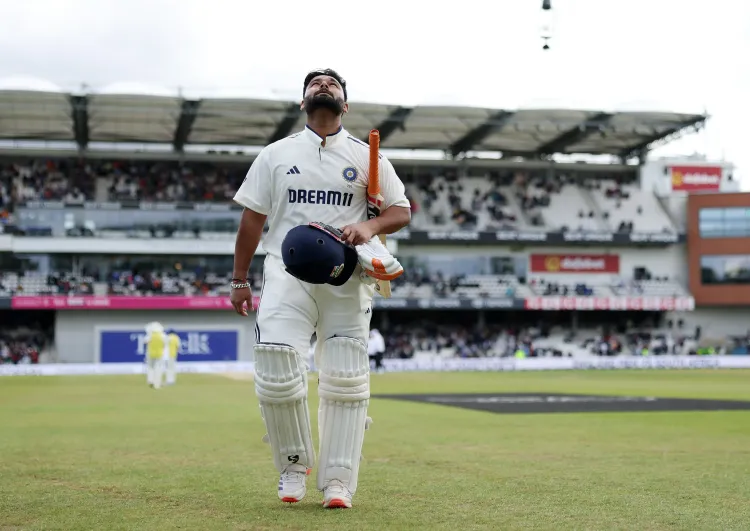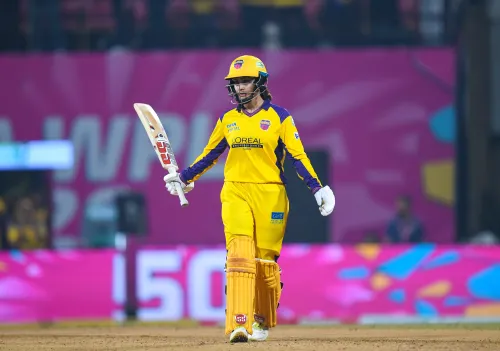Why Was Rishabh Pant Reprimanded in the 1st Test?

Synopsis
Key Takeaways
- Rishabh Pant received an official reprimand for dissent.
- Violation pertains to Level 1 of the ICC Code of Conduct.
- One demerit point added to his record.
- Pant acknowledged his wrongdoing.
- Test match remains competitive with hosts needing 350 runs.
Leeds, June 24 (NationPress) India’s vice-captain Rishabh Pant has received an official reprimand for violating Level 1 of the ICC Code of Conduct during the initial Test match against England at Headingley, as announced by the ICC on Tuesday.
Pant, who delivered a remarkable performance with the bat by scoring twin centuries in this match, was reprimanded for his behavior on the field during England’s first innings.
He was found to have violated Article 2.8 of the ICC Code of Conduct for Players and Player Support Personnel, which pertains to “showing dissent at an Umpire’s decision during an international match.”
Additionally, one demerit point has been added to Pant’s disciplinary record, marking his first offence in 24 months.
During the 61st over of England's innings, while Harry Brook and Ben Stokes were batting, Pant was observed discussing the condition of the ball with the umpires.
When the umpires declined to change the ball after inspecting it with the gauge, the wicket-keeper expressed his dissent by throwing the ball to the ground in front of the officials.
No disciplinary hearing was necessary, as Pant acknowledged the offence and accepted the penalty suggested by Richie Richardson of the ICC Elite Panel of Match Referees.
The allegations were put forth by on-field umpires Chris Gaffaney and Paul Reiffel, along with third umpire Sharfuddoula Ibne Shahid and fourth umpire Mike Burns.
Level 1 violations carry a minimum penalty of an official reprimand, a maximum penalty of 50 percent of a player’s match fee, and one or two demerit points.
The Leeds Test is evenly poised, with the hosts requiring 350 runs to clinch victory on Day 5, with all 10 wickets remaining intact.










